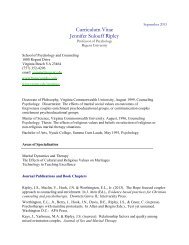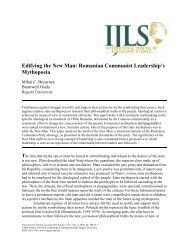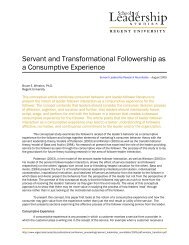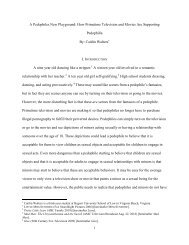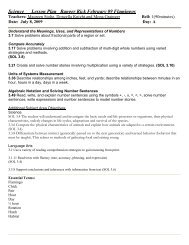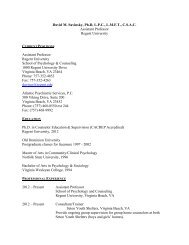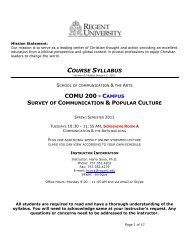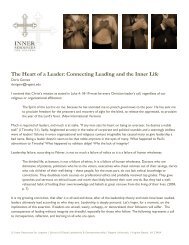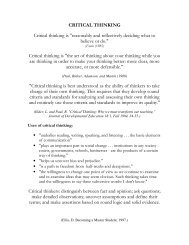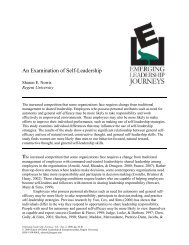CROSS CULTURAL LEADERSHIP
CROSS CULTURAL LEADERSHIP
CROSS CULTURAL LEADERSHIP
Create successful ePaper yourself
Turn your PDF publications into a flip-book with our unique Google optimized e-Paper software.
UNDERSTANDING MAJOR DIFFERENCES IN<br />
<strong>CROSS</strong>-<strong>CULTURAL</strong> COMMUNICATION<br />
“…the single greatest barrier to business success is the one erected by culture."<br />
Edward T. Hall and Mildred Reed Hall<br />
Source: http://www.kwintessential.co.uk/cross-cultural/cross-cultural-awareness.html<br />
<strong>CROSS</strong> <strong>CULTURAL</strong> BUSINESS BLUNDERS<br />
These are some examples of how cultural ignorance can and does lead to negative (and much<br />
of the time humorous) consequences. The following cultural blunders are presented in order<br />
illustrate to people how crucial cultural awareness is in international business today.<br />
1. Managers at one American company were startled when they discovered that the brand<br />
name of the cooking oil they were marketing in a Latin American country translated into<br />
Spanish as "Jackass Oil."<br />
2. American Motors tried to market its new car, the Matador, based on the image of courage<br />
and strength. However, in Puerto Rico the name means "killer" and was not popular on the<br />
hazardous roads in the country.<br />
3. A US telephone company tried to market its products and services to Latinos by showing a<br />
commercial in which a Latino wife tells her husband to call a friend, telling her they would<br />
be late for dinner. The commercial bombed since Latino women do not order their husbands<br />
around and their use of time would not require a call about lateness.<br />
4. A cologne for men pictured a pastoral scene with a man and his dog. It failed in Islamic<br />
countries dogs are considered unclean.<br />
5. Proctor & Gamble used a television commercial in Japan that was popular in Europe. The<br />
ad showed a woman bathing, her husband entering the bathroom and touching her. The<br />
Japanese considered this ad an invasion of privacy, inappropriate behavior, and in very<br />
poor taste.<br />
6. An American business person refused an offer of a cup of coffee from a Saudi businessman.<br />
Such a rejection is considered very rude and the business negotiations became<br />
stalled.<br />
7. A Japanese manager in an American company was told to give critical feedback to a subordinate<br />
during a performance evaluation. Japanese use high context language and are<br />
uncomfortable giving direct feedback. It took the manager five tries before he could be direct<br />
enough to discuss the poor performance so that the American understood.<br />
8. One company printed the "OK" finger sign on each page of its catalogue. In many parts of<br />
Latin America that is considered an obscene gesture. Six months of work were lost because<br />
they had to reprint all the catalogues.



